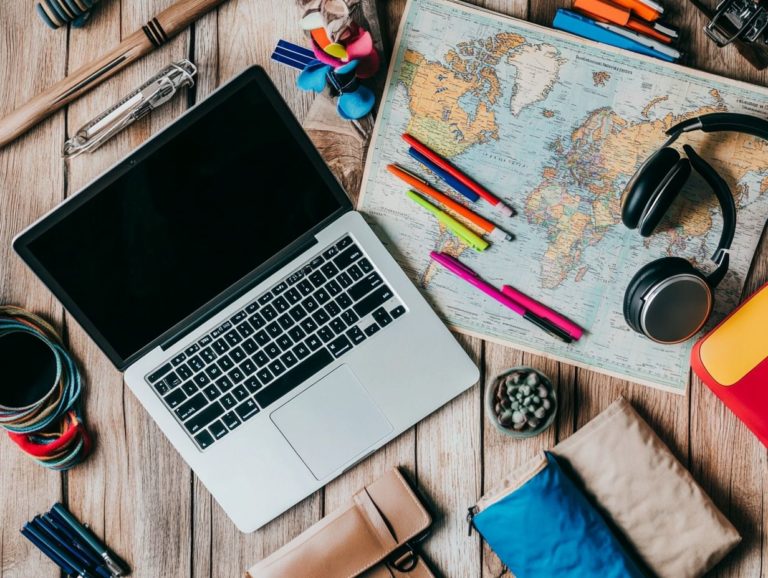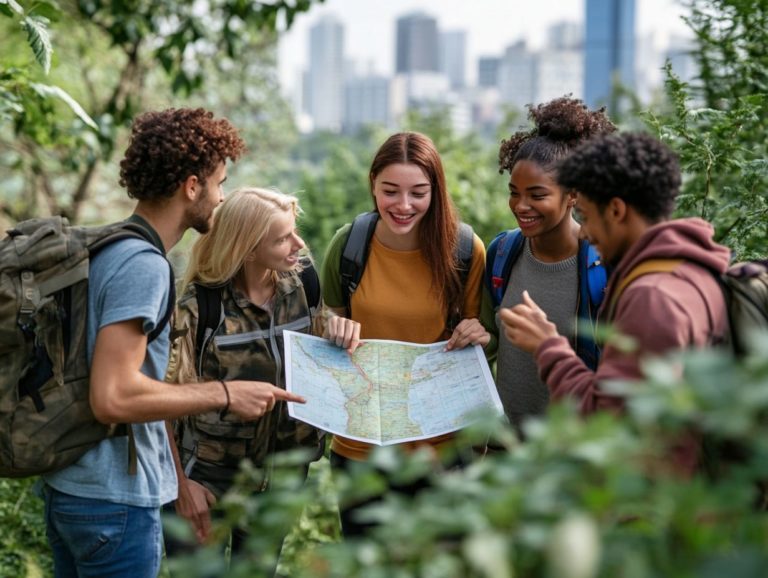5 Cultural Do’s and Don’ts for Student Travelers
Traveling as a student offers a transformative experience full of learning opportunities beyond the classroom.
To enrich your journey, understanding and respecting the culture of your destination is essential. This guide shares five key cultural do’s and don’ts, from researching local customs to dressing appropriately.
You will discover the benefits of cultural immersion, common differences to be mindful of, and practical tips for navigating diverse norms.
Prepare to elevate your travels by appreciating the cultures you engage with!
Contents
- Key Takeaways:
- 1. Do Your Research on the Country’s Culture and Customs
- 2. Dress Appropriately for the Culture
- 3. Be Respectful of Local Customs and Traditions
- 4. Learn Basic Phrases in the Local Language
- 5. Be Mindful of Personal Space and Boundaries
- What Are the Benefits of Cultural Immersion for Student Travelers?
- What Are Some Common Cultural Differences to Be Aware Of?
- How Can Student Travelers Avoid Cultural Misunderstandings?
- What Are Some Tips for Navigating Different Cultural Norms and Values?
- How Can Student Travelers Show Respect and Appreciation for Different Cultures?
- What Are the Long-Term Effects of Cultural Awareness and Understanding?
- Frequently Asked Questions
- What are the top 5 cultural do’s for student travelers?
- What are the top 5 cultural don’ts for student travelers?
- How can researching and respecting local customs benefit student travelers?
- Why is it important to learn key phrases in the local language?
- What should student travelers consider when dressing appropriately for the culture?
- What resources can student travelers use to learn about local laws and regulations?
Key Takeaways:
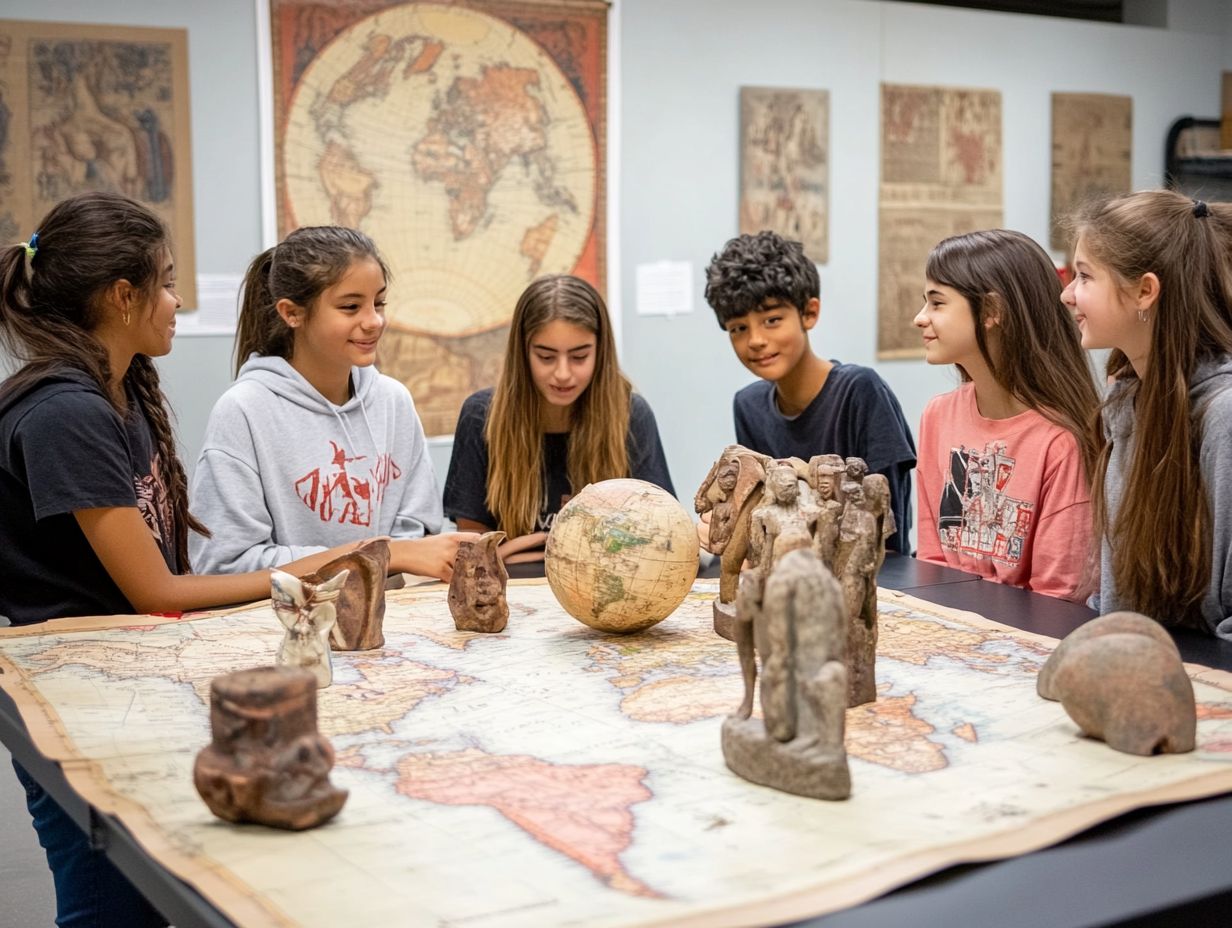
- Do your research on the country’s culture and customs before traveling.
- Dress appropriately to show respect for the culture.
- Be mindful of customs to avoid misunderstandings.
1. Do Your Research on the Country’s Culture and Customs
Understanding a country’s culture is essential for a meaningful travel experience. It helps you appreciate local customs and engage respectfully with people.
Each destination like Japan, Germany, or Spain has unique cultural nuances that can elevate your journey. Researching cultural etiquette allows you to savor authentic experiences.
For example, in Japan, bowing shows deep respect. In Germany, punctuality is crucial, while in Spain, late-night dinners are common. Embracing these customs leads to unforgettable connections.
Understanding these distinctions enriches your travel. It builds trust and appreciation with hosts, leading to amazing stories and insights into the local way of life.
2. Dress Appropriately for the Culture
Dressing appropriately is essential for showing respect, as it fosters positive interactions and enhances your travel experience. For more insights, check out these tips for traveling solo as a student.
This practice reflects well on you and helps you connect with locals. In Japan, for instance, wearing shoes indoors is impolite. Many Middle Eastern countries expect modest attire at sacred sites.
To avoid cultural missteps, consult travel guides, blogs, or social media groups for insights. Additionally, exploring unique experiences for students traveling abroad can enhance your understanding of local customs. Knowing what to wear during religious ceremonies or social gatherings can lead to richer experiences.
3. Be Respectful of Local Customs and Traditions
Respecting local customs enriches your travel and fosters goodwill. Participating in traditional ceremonies, like a tea ceremony in Japan or a dance in Ghana, creates lasting memories.
Using simple phrases in the local language enhances your interactions. Acknowledging dress codes or dining etiquette fosters respect and opens doors to authentic experiences.
These engagements strengthen the bond between you and the locals, making your journey more meaningful.
4. Learn Basic Phrases in the Local Language
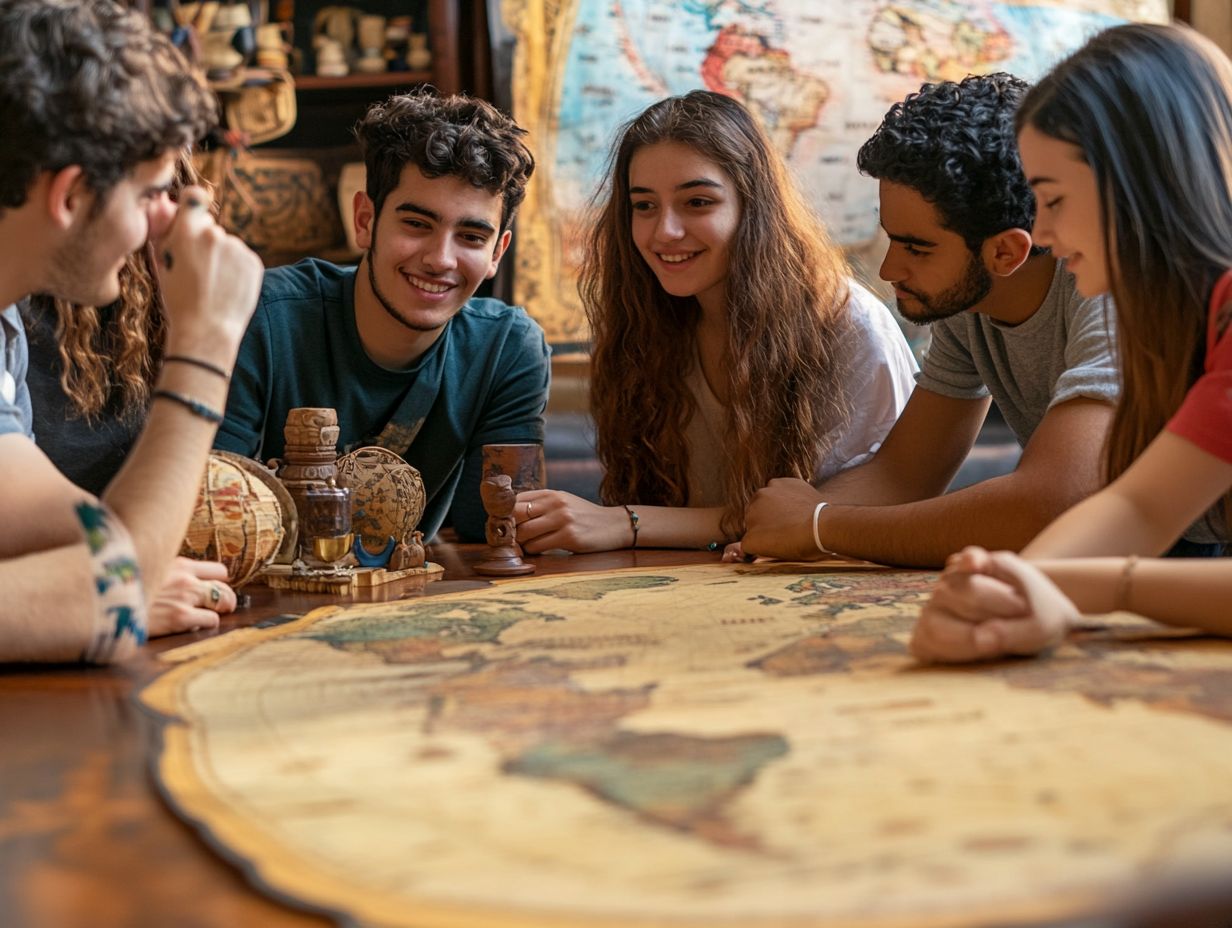
Master a few local phrases to unlock an exciting travel experience! It makes you more approachable and leads to smoother interactions.
When you say “Hola” in a Spanish shop, it shows respect and can spark friendly chats about local crafts. In France, a polite “Merci” can lead to warm smiles and a deeper appreciation for the region s heritage.
A simple “Sumimasen” in Japan opens doors to engaging conversations with shopkeepers. These phrases are gateways to real connections, enriching your journey in unexpected ways.
5. Be Mindful of Personal Space and Boundaries
Respecting personal space is essential while exploring different cultures. Comfort levels vary greatly from one region to another.
In many Asian cultures, keeping a respectful distance is the norm. In contrast, you might find warm embraces in Latin America, reflecting a friendly culture.
Public displays of affection differ too. For example, holding hands in France is common, while more conservative societies might frown upon it. By adapting to local social norms, you enhance your experiences and ensure positive interactions.
What Are the Benefits of Cultural Immersion for Student Travelers?
Cultural immersion offers a treasure trove of unique experiences. It allows you to connect deeply with local customs and engage authentically with communities.
Participating in traditional practices like culinary classes or festivals provides insights that surpass typical tourist attractions. These interactions broaden your worldview and cultivate empathy and adaptability, which are vital in our interconnected society.
What Are Some Common Cultural Differences to Be Aware Of?
Understanding common cultural differences is key to respectful travel. For more insights, check out cultural etiquette tips that can enhance your cultural understanding in new destinations.
In Northern Germany, punctuality is highly valued. Arriving late can be seen as disrespectful, while in Venezuela, a relaxed attitude toward time prevails.
In Japan, bowing is customary and shows respect, while a firm handshake is common in Western cultures. Recognizing these customs fosters positive interactions and enriches your appreciation of the diverse world around you.
How Can Student Travelers Avoid Cultural Misunderstandings?
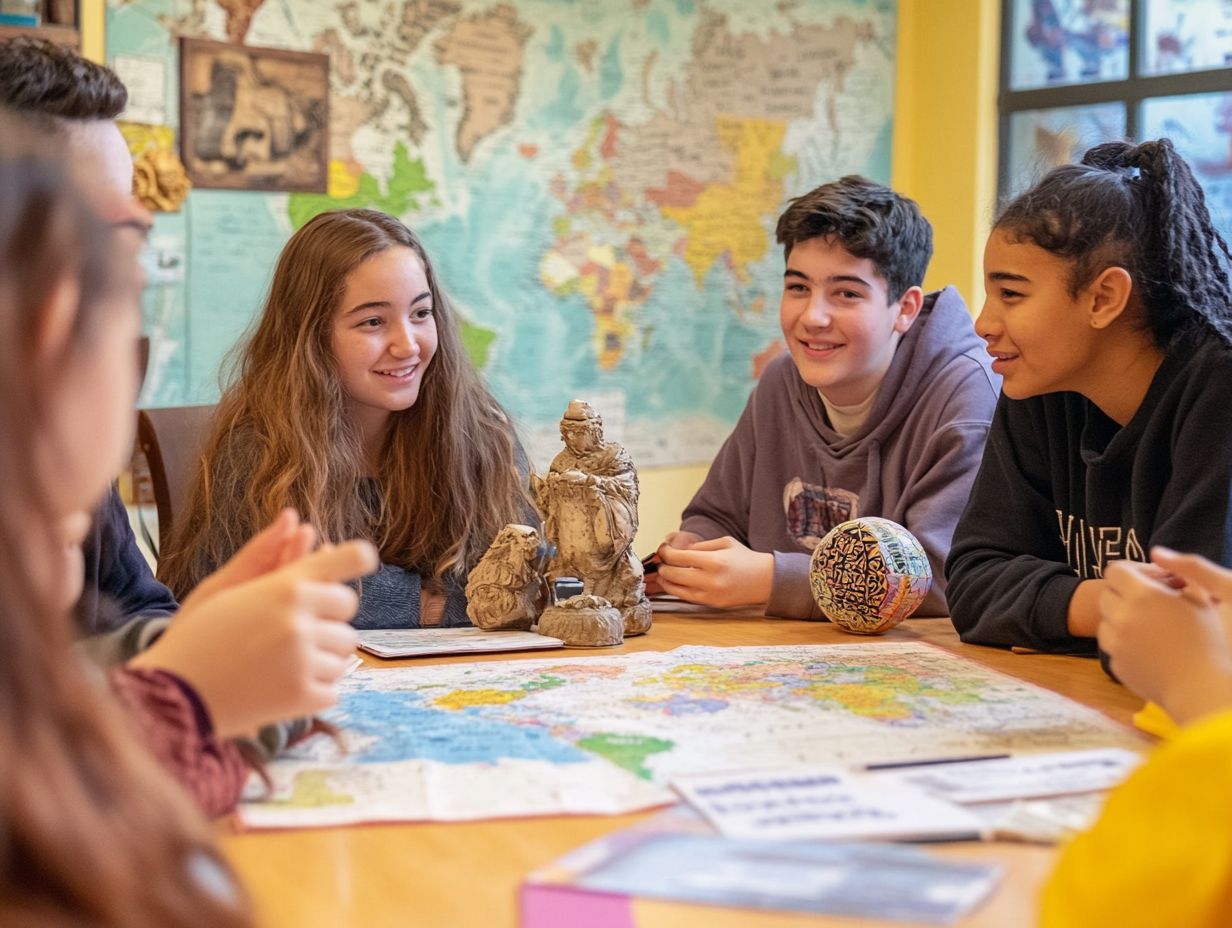
Avoiding cultural misunderstandings is essential for you as a student traveler. It helps maintain respectful behavior and fosters positive interactions with locals throughout your journey. For those looking to enhance their experience, check out 5 tips for traveling solo as a student.
Understanding the small differences in cultures that vary by region can greatly enhance your experience. Research local customs, social etiquette, and dining practices before you set off on your adventures.
Observation is equally important. Pay attention to how locals interact in different situations for invaluable insights. For example, knowing when to use formal versus informal greetings and understanding dining etiquette like table manners and tipping practices can save you from awkward moments.
These small adjustments can lead to more meaningful exchanges and a deeper appreciation of the diverse cultures you encounter.
Navigating different cultural norms and values requires good awareness and adaptability. This enables you to engage meaningfully with diverse social situations.
To truly connect with people from various backgrounds, grasp the subtle nuances of etiquette, such as dining customs and local practices. For instance, when dining in Japan, don t stick your chopsticks upright in rice; it resembles a funeral ritual. In many Middle Eastern cultures, using your right hand for eating is the norm, as the left hand is often viewed as unclean.
Familiarizing yourself with these customs elevates your travel experience and showcases your respect and appreciation for the local culture, especially when traveling off the beaten path.
How Can Student Travelers Show Respect and Appreciation for Different Cultures?
Show respect and appreciation for different cultures by diving into local experiences! Participate in local festivals for an authentic experience that showcases the unique heritage of a region.
Support local businesses, whether by dining at family-owned restaurants or shopping at artisan markets. These actions enrich your travel experience and foster meaningful connections with residents.
As you meet artists, chefs, and craftsmen, you gain valuable insights into the stories that shape the identity of the places you visit. This nurtures a more profound respect for the vibrant diversity of the world around you.
What Are the Long-Term Effects of Cultural Awareness and Understanding?
Cultural awareness and understanding can profoundly impact you as a traveler, fostering positive connections and respectful behaviors that transcend cultural boundaries.
When you immerse yourself in different cultures, you uncover new perspectives that enrich your personal narrative. These experiences cultivate empathy, enabling you to recognize the unique values and customs of others.
This growth benefits you during your travels and continues to shape your relationships back home. By nurturing appreciation for diversity, you create a ripple effect, encouraging those around you to engage openly and thoughtfully.
Ultimately, respectful interactions can lead to lasting friendships and a deeper appreciation for the rich tapestry of human experience.
Frequently Asked Questions
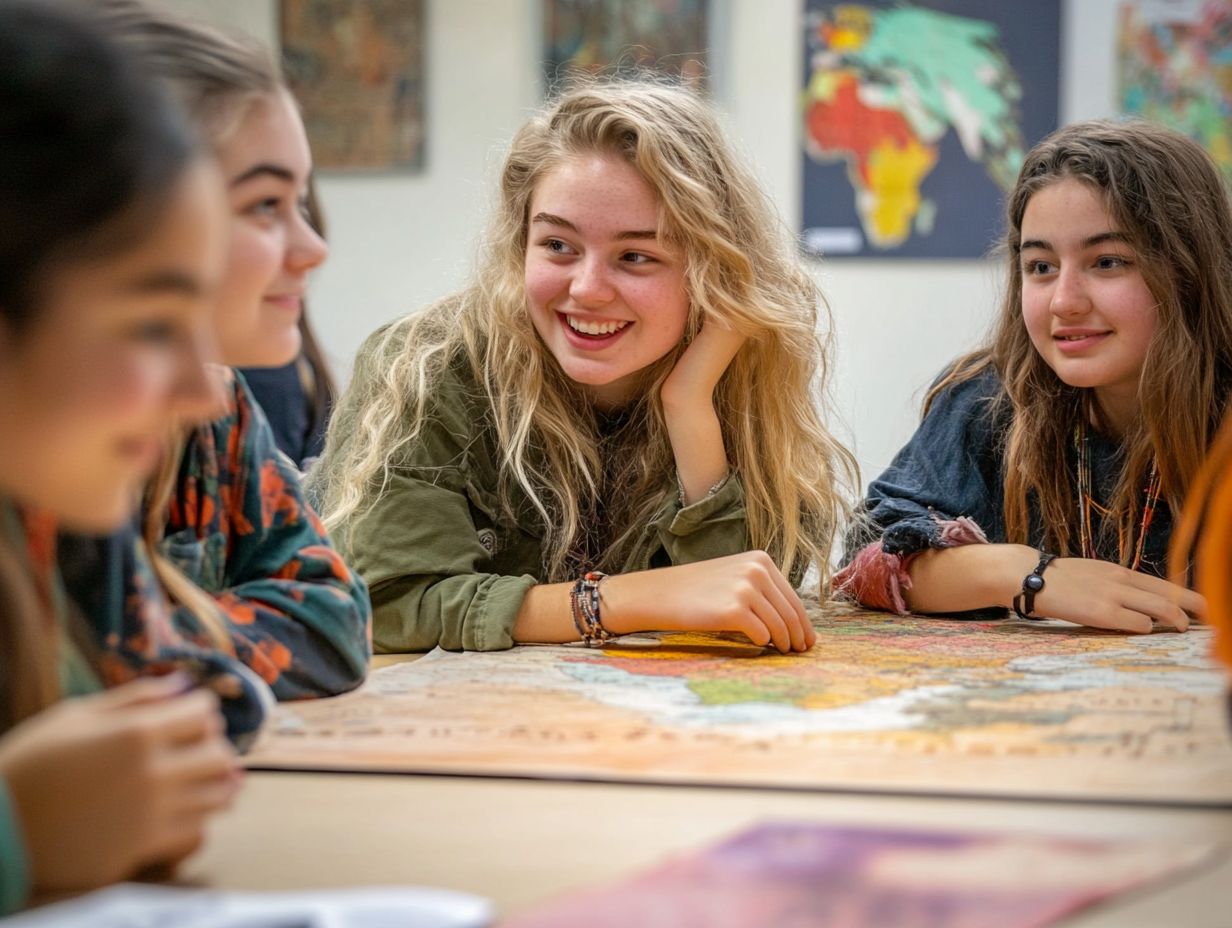
Ready to explore? Start your journey with these tips today!
What are the top 5 cultural do’s for student travelers?
The top 5 cultural do’s for student travelers are:
- Research and respect local customs and traditions.
- Learn key phrases in the local language.
- Dress appropriately for the culture.
- Be open-minded and willing to try new things.
- Follow local laws and regulations.
Embrace new experiences and respect local customs for an unforgettable adventure!
What are the top 5 cultural don’ts for student travelers?
The top 5 cultural don’ts for student travelers are:
- Don’t disrespect or mock local customs and traditions.
- Avoid using offensive language or gestures.
- Don’t drink too much alcohol or use drugs.
- Avoid taking photos without permission.
- Avoid risky or illegal activities at all costs to ensure your safety and enjoyment!
How can researching and respecting local customs benefit student travelers?
Researching and respecting local customs helps student travelers better understand and appreciate the culture they are visiting, enhancing their experience with safety tips for students traveling abroad.
It helps avoid unintentionally offending locals and promotes a more positive and authentic travel experience.
Why is it important to learn key phrases in the local language?
Learning key phrases in the local language shows respect and effort towards the culture.
It can help with basic communication, making it easier to navigate and interact with locals. It can also make your travel experience better.
What should student travelers consider when dressing appropriately for the culture?
Student travelers should consider local customs and religious beliefs when choosing their attire.
It is important to dress modestly and avoid clothing that may be considered offensive.
Researching the weather is also helpful to dress accordingly.
What resources can student travelers use to learn about local laws and regulations?
Student travelers can use official government websites, travel guides, or consult with the local embassy to learn about local laws and regulations, and they should also consider exploring cultural tips for language learners abroad to enhance their experience.
Being aware of any restrictions or rules is vital to avoid getting into trouble while traveling.

